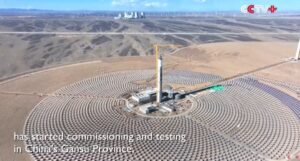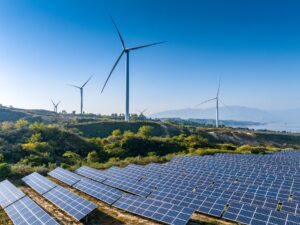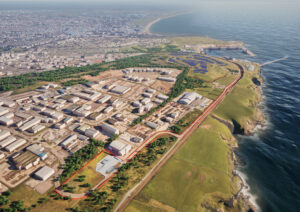Ammonia-fuelled cells could boost clean off-grid power
The British fuel cell company AFC Energy has successfully announced the first successful integration of ammonia with alkaline fuel cells for hydrogen production.
The integration, achieved by ‘cracking’ ammonia to create hydrogen and generate electricity, could potentially make alkaline fuel cells a cheap alternative to diesel generators.
The breakthrough has been heralded as potentially a big step in the world’s move towards clean off-grid power.
AFC Energy said the development could help the UK boost its electric vehicle charging infrastructure and reduce harmful emissions on construction sites.
‘The need for affordable, clean off-grid energy has never been greater,’ said Adam Bond, CEO of AFC Energy. ‘There could be as many as 36 million EVs on UK roads by 2040 according to the Future Energy Scenarios forecast, and the National Grid simply won’t be able to cope with that kind of rise in demand.
‘In major cities such as London, construction sites which rely on diesel generators are responsible for 14.5% of emissions of the most dangerous particulates according to the London Atmospheric Emissions Inventory. These particulates, such as PM2.5, have been linked to an increased number of respiratory related illnesses.
‘AFC Energy’s latest development in ammonia integration offers a timely opportunity to address these issues.’

AFC Energy said their integration of ammonia with alkaline fuel cells could make off-grid power for construction sites cleaner.
Ammonia is one of the world’s most widely available inorganic materials and is, crucially, clean, with only water and nitrogen produced by its cracking and consumption.
AFC Energy’s research, funded by the EU’s Alkammonia project, enabled alkaline fuel cells to accept hydrogen derived from ammonia, making ammonia a cost-effective hydrogen solution that does not impact on the fuel cells’ performance.
As ammonia can be generated anywhere in the world, AFC Energy said it could allow hydrogen fuel cells to be deployed in remote locations where they couldn’t be imported and stored previously.
The company has already proven that the power produced by the cells can be scaled up, allowing it to potentially power larger off-grid communities.
Companies are invested increased attention in off-grid power generation as the world looks to cut its reliance on diesel generators, which produce harmful emissions.
Earlier this year, a rail regeneration project in Llanwern, South Wales was powered by solar lighting and battery technologies instead of diesel generators.
The project, centred around 72 continuous hours on site over the May bank holiday weekend, managed to operate 97% diesel-free, saving 6,000 litres of fuel and over 15 tonnes of CO2 emissions.
















